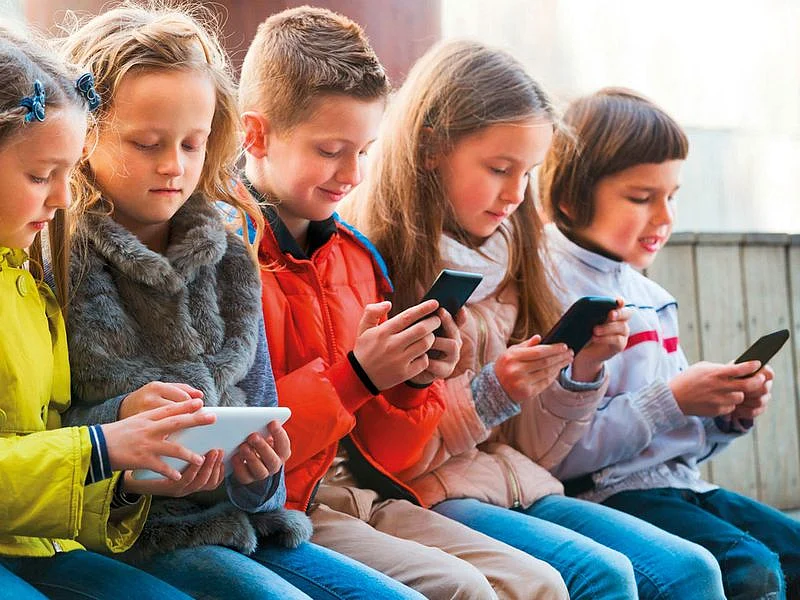Family first: Reclaiming childhood in a digital world
Why it is important to raise children who feel, play, and love in a world of distraction

Children today have hundreds of digital “friends,” yet many sit alone in their rooms. Screens promise connection, but what they deliver is isolation — and childhood is quietly slipping away. Families gather at the same table but live in different worlds — each member bent over a device, together yet alone.
Not long ago, childhood was about running barefoot, scraped knees, and laughter echoing in real rooms. Streets and fields brimmed with children spilling out of homes, free and unshackled. Afternoons glowed golden, dust rising beneath our racing feet, mingling with the scent of pakoras and the fragrance after rain.
We played cricket with rubber balls, wickets made of sticks, hearts racing in hide-and-seek behind banyan trees. We shouted, fought, and reconciled within minutes. Kites climbed into the sky, tails fluttering; marbles clicked in the dust, and every game taught patience, compromise, and belonging.
Family time
Evenings belonged to family: stories shared, laughter echoing across verandahs, presence uninterrupted by devices. Loneliness felt impossible.
How different childhood feels today. Many children sit alone — headphones on, faces lit by glowing pixels, companionship reduced to digital echoes. Conflicts are patched with emojis, victories celebrated with stickers, secrets whispered into the void. Their bodies move less, lungs burn less from running, and friendships unfold in artificial spaces that lack warmth and presence.
More voices, more faces — yet less true connection. The dangers run deeper for the youngest. Studies reveal a sharp rise in anxiety, depression, and feelings of inadequacy among children tethered to devices. Every filtered image whispers that they are not enough. One careless comment can cut like a blade; one post can unravel a child’s confidence. Surrounded by hundreds of digital “friends,” too many feel unseen and unloved.
Slower but less lonely lives
Our ancestors may have lived slower, narrower lives, but they were rarely as lonely — or anxious — as children today. Devices magnify comparisons, amplify insecurities, and replace real friendships with fleeting likes.
Schools, of course, require children to use technology at home for research and assignments. Used wisely, it is a powerful tool for learning. But the danger is when it replaces family time, play, and conversation. Children do not need more apps — they need time to play, share meals where laughter spills across the table, and experience presence that cannot be downloaded.
They need parents who look them in the eye, not at a screen. They need to fall, fight, and forgive in real games; to run until their lungs ache; to know the strength of a hug and the reassurance of a hand held tightly.
There is hope. We can still raise a generation that laughs loudly, feels deeply, and loves fully. Let children chase marbles in the dust, send kites soaring into tangled branches, run until joy echoes down the street. Let families reclaim the dinner table, talk face-to-face, share freely, and truly be present for one another.
The call is simple yet urgent: family first, always.
Michael Guzder is Senior Vice-President of Education at GEMS and a former Principal
Network Links
GN StoreDownload our app
© Al Nisr Publishing LLC 2026. All rights reserved.